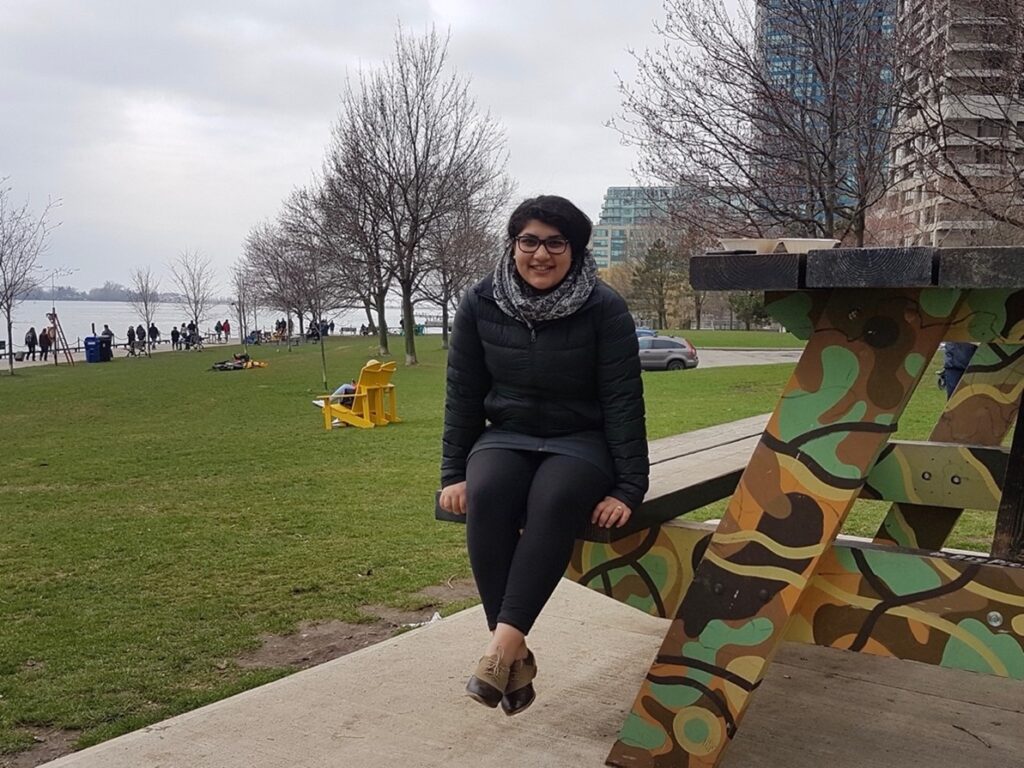
Jaspreet Bajwa, MD
Clinical Fellow Interventional Radiology
University of Toronto
Can you share your journey into interventional radiology and what inspired you to pursue this specialty?
I hadn’t given a thought to IR until I did my first rotation in it. I had always enjoyed every rotation in residency, but particularly enjoyed my breast, MSK and body rotations because they had a procedural and clinical component. I enjoyed meeting patients again, and even more enjoyed working with my hands. My first IR rotation solidified this but it wasn’t until my second IR rotation where my teachers pulled me aside and told to seriously consider a career in IR that brought it to the forefront of my mind. I did my due diligence in researching the career and speaking to as many people as I could about it, and in the end felt that an IR career is where I would be most professionally fulfilled.
How do you balance work and personal life in a demanding field like interventional radiology?
Fellowship is a year of many highs and many lows, and is incredibly demanding of your time and energy. To set you up for success, I believe it’s important to have a good support system in place outside of work to ground you and help keep life in perspective. Also remember you don’t have to be the one to do everything – outsourcing chores or tasks that are low priorities for you free up your time for other things. Examples would be ordering groceries online or getting them delivered, getting a maid service etc. Prioritizing, a great work ethic and a solid support system are all you need for a balanced year in fellowship!
What advice do you have for women who are aspiring to enter the field of interventional radiology?
I would encourage them to chat to women in the field already and ask them every question that is on their mind, and to not be afraid to ask the hard questions on topics such as pregnancy, family life and radiation risk. I encourage talking to multiple people to get multiple perspectives. The more information you have at your disposal, the better equipped you are to make decisions for your own life and career.
Are there any specific skills or areas of knowledge that you recommend focusing on during training for a career in interventional radiology?
I highly recommend getting your hands on a needle and probe at every opportunity possible during residency. Being able to expertly use an US probe and a needle set us apart from other specialties, and open doors to almost every organ in the body. Having this basic skill also sets you up for success in your fellowship, so that you can then work on refining your skills to get the smallest of targets, and add fluoro and CT guided skills into your arsenal. Fellowship is only a year, so starting on the ground running is an excellent way to maximize the year.
What role do you think diversity plays in enhancing the practice of interventional radiology?
Diversity in the doctors in IR means more understanding in the diversity of our patients and providing an overall more inclusive place for our patients to come to for their health concerns. It matters greatly when there are cultural or language barriers to getting treatment, and having a specialty with many physicians from all walks of life can help alleviate some of those barriers. More specifically, having more women in IR can mean more attention on health issues more specific to women, especially when building procedure protocols or pain relief regimens to procedures like UAEs, breast interventions, pelvic varices etc.
Are there any specific organizations or conferences that you recommend for networking and career development in interventional radiology?
The CAIR RFS is a fantastic place to start for Canadians. You get to meet like minded individuals from all phases of training and make friends with people you will likely be meeting over and over in your career as an IR. I would highly recommend attending their in person and online meetings, and as a trainee, submit cases to the Virtual Angio Clubs and Residents and Fellows Day at the Annual Meeting. The more people you meet, the more perspectives on IR you will benefit from.
Have you encountered any specific stereotypes or misconceptions about women in interventional radiology, and how do you address them?
Yes. Before I joined the CAIR RFS, I thought the women that went into IR had to be the kinds of girls that fit into the boys’ club, looked a certain way that people didn’t worry if they’d be able to withstand wearing lead all day, or had to have a strong personality that people believed they’d be able to lead in the Angio suit. However, after seeing so many women interested in IR during my time with the RFS, with such diversity in their leadership styles, their cultural backgrounds, and their personalities, that I immediately felt more validated; that I, too, can be an IR and I wouldn’t be the outcast. There’s plenty of room in this field for everyone, so don’t let stereotypes stop you from doing what you love.